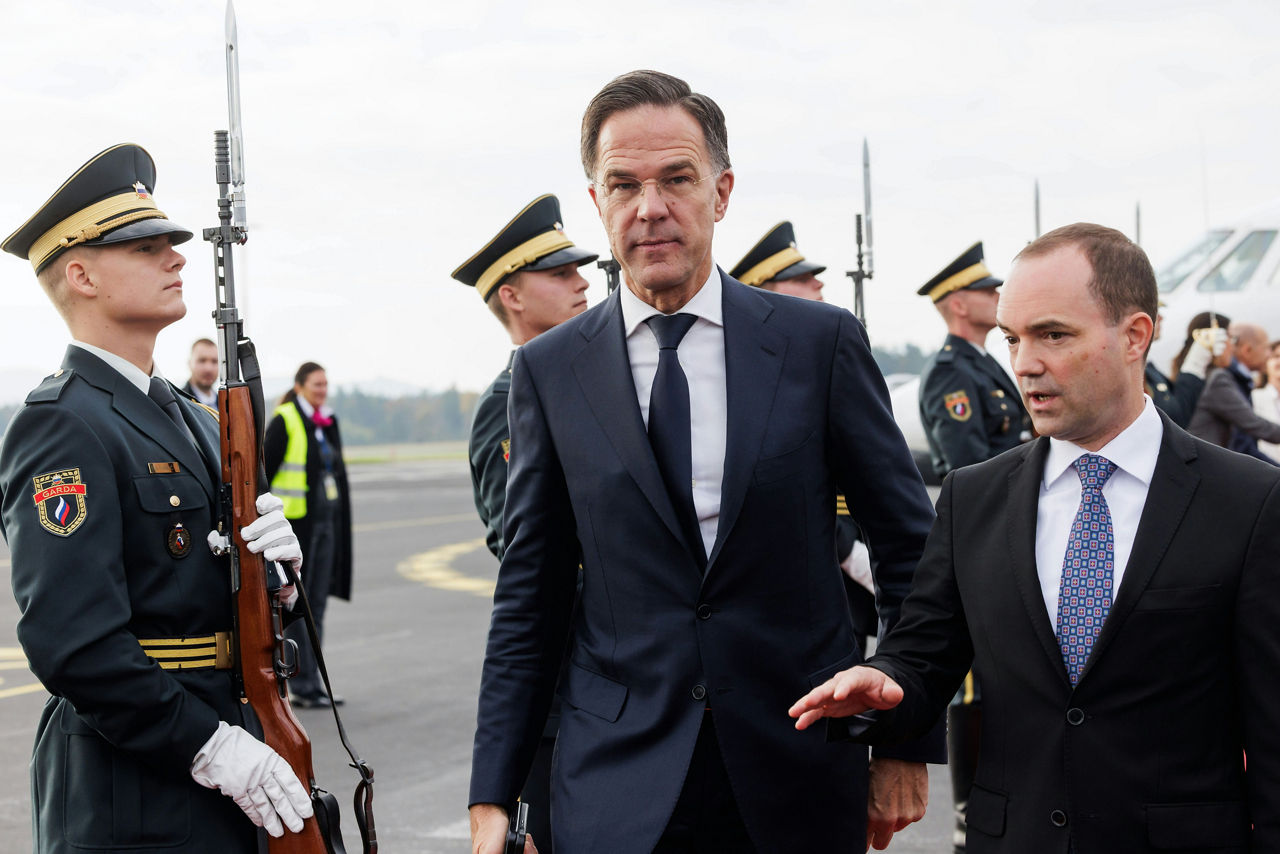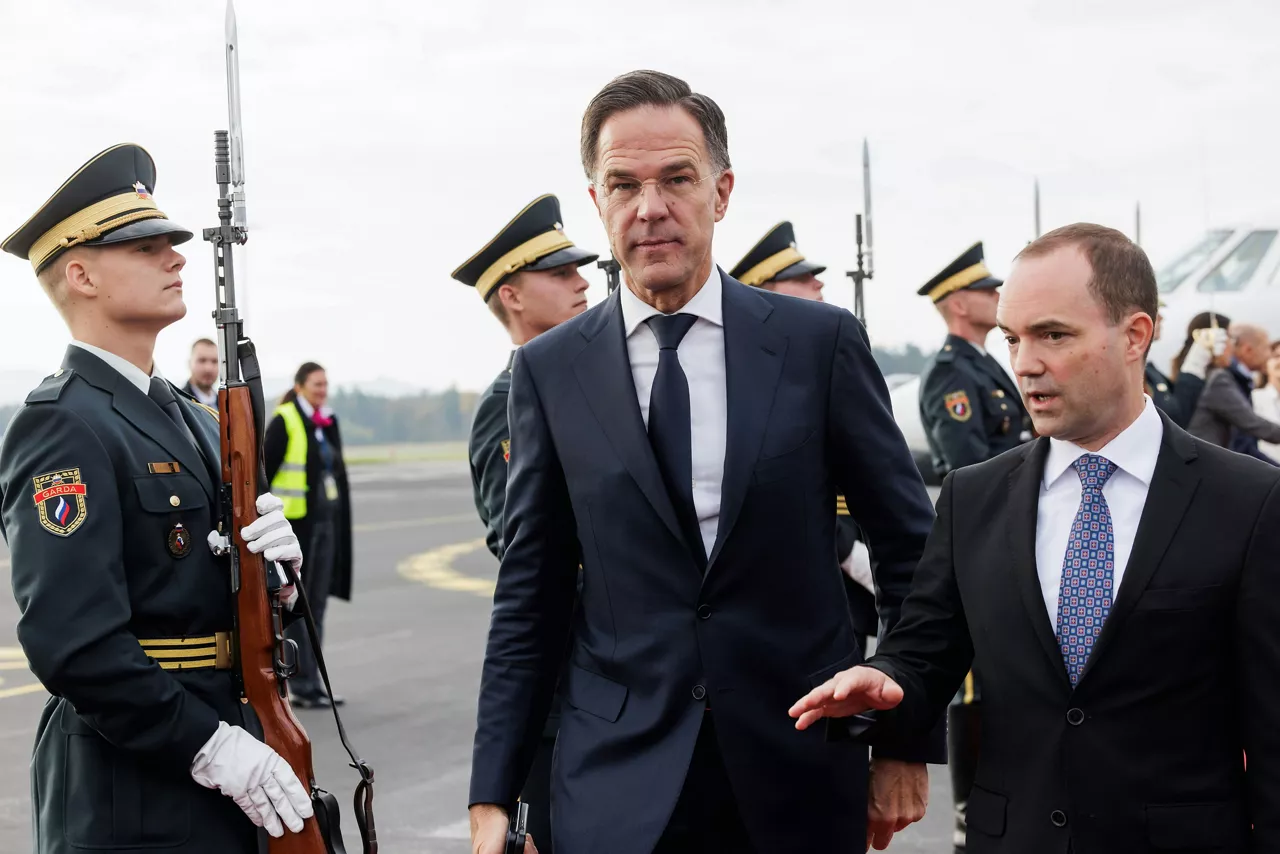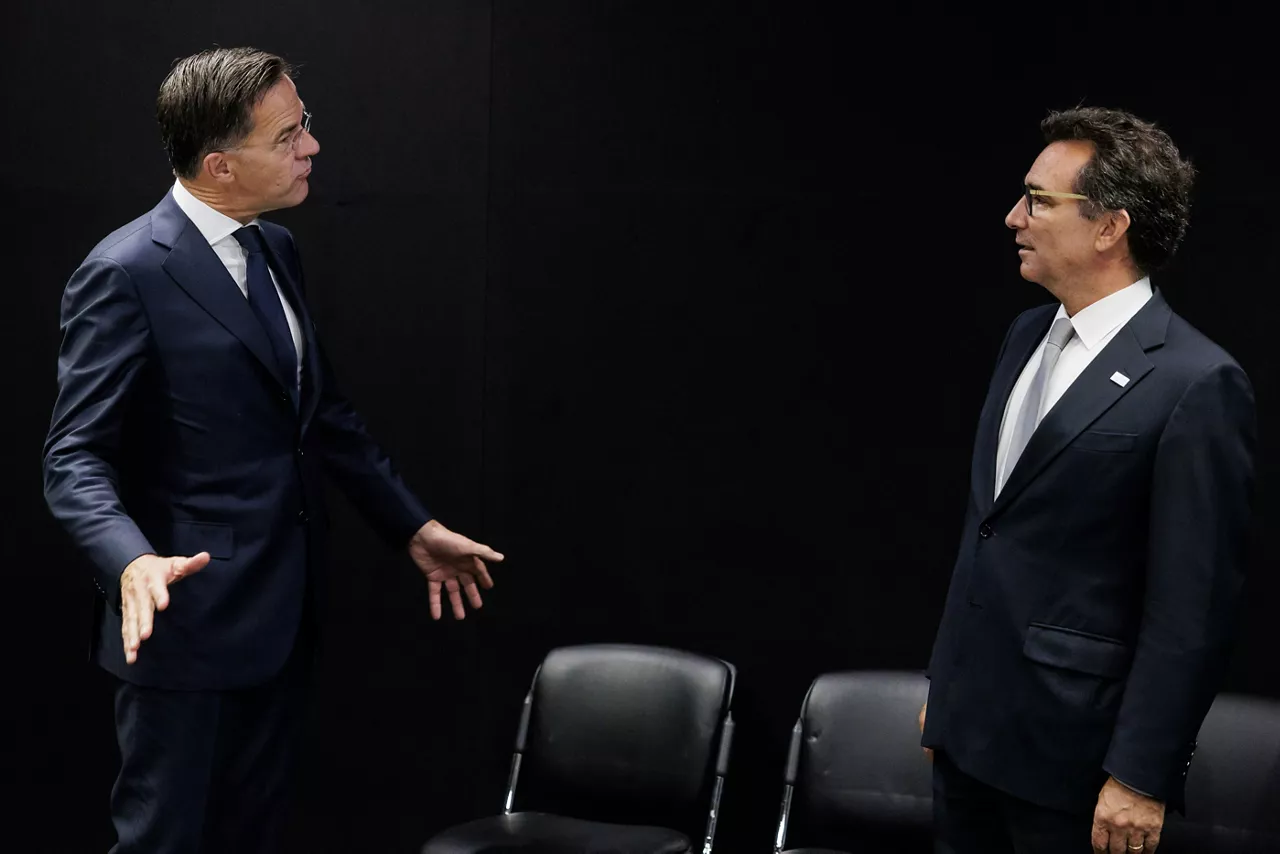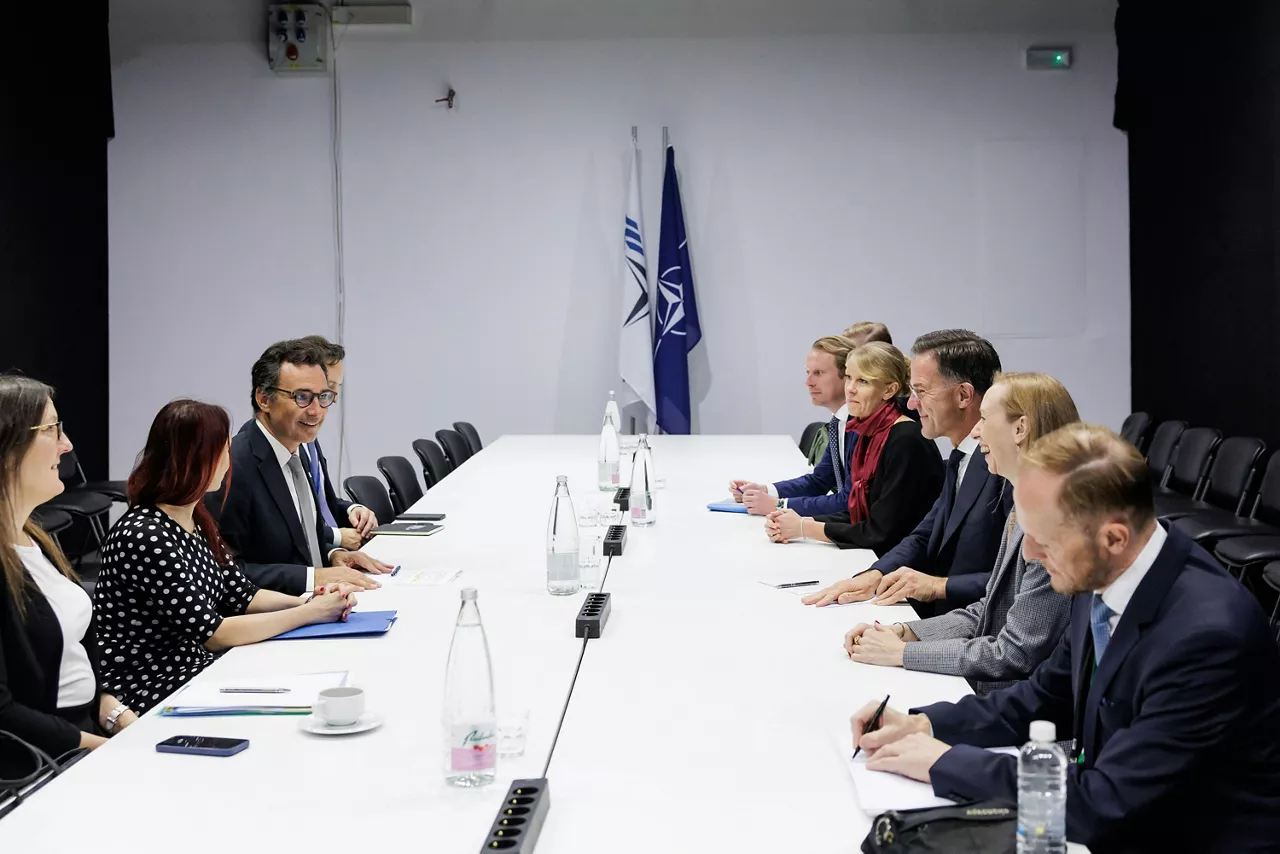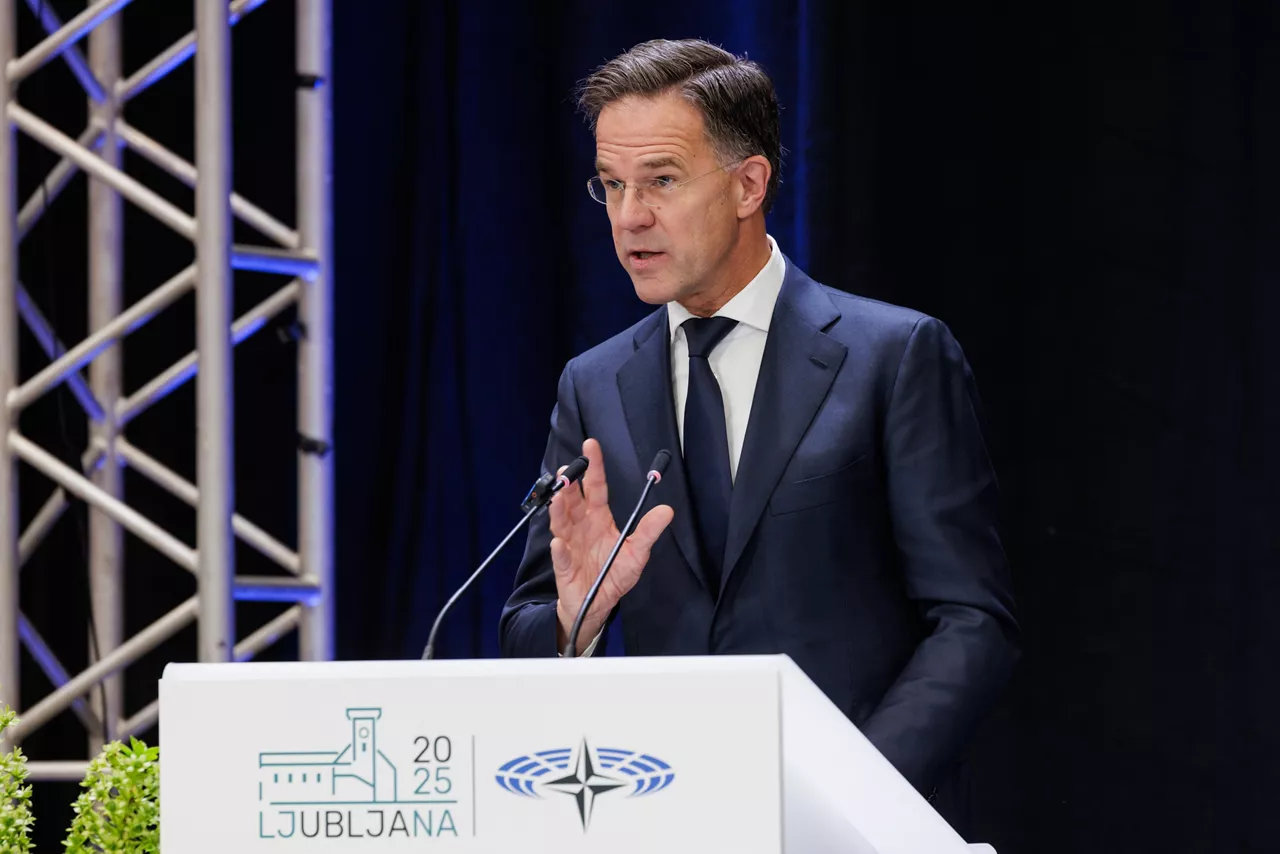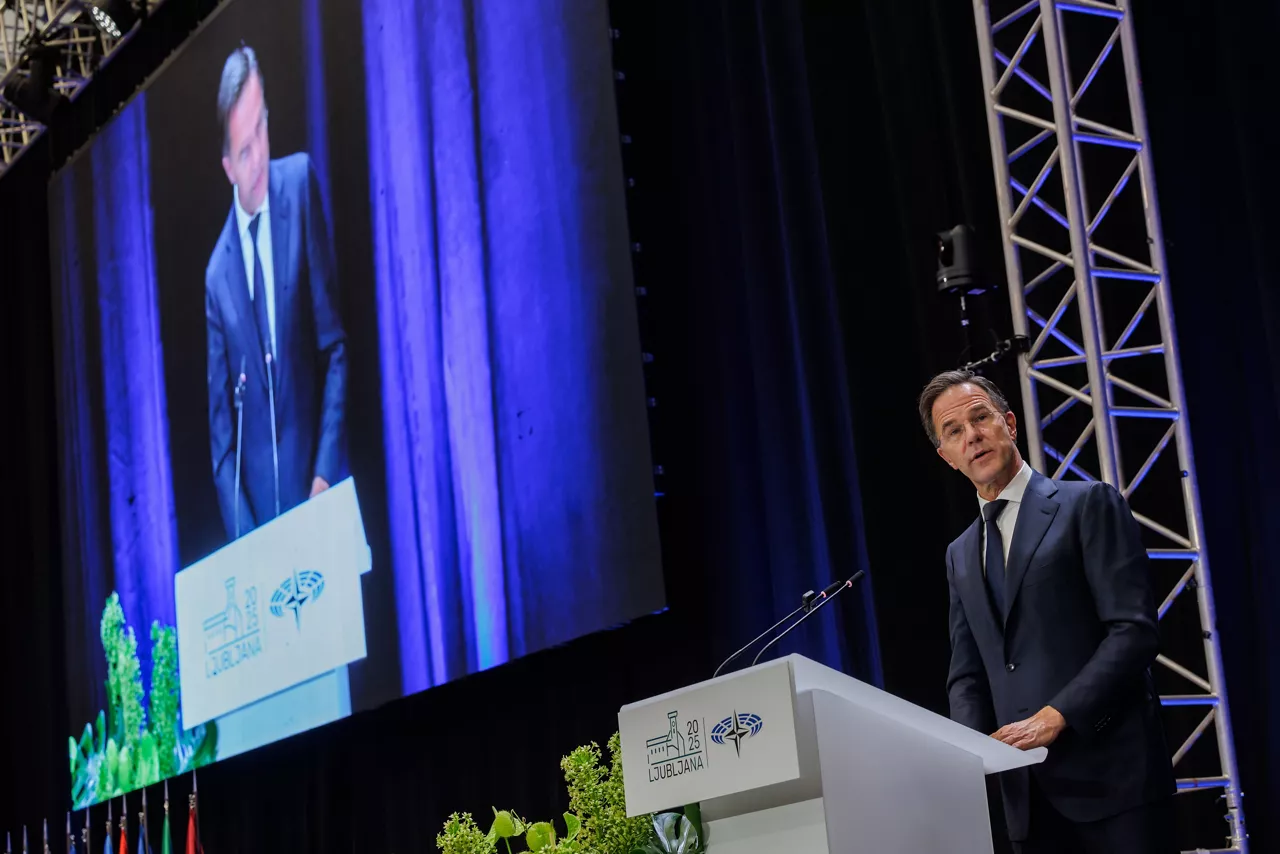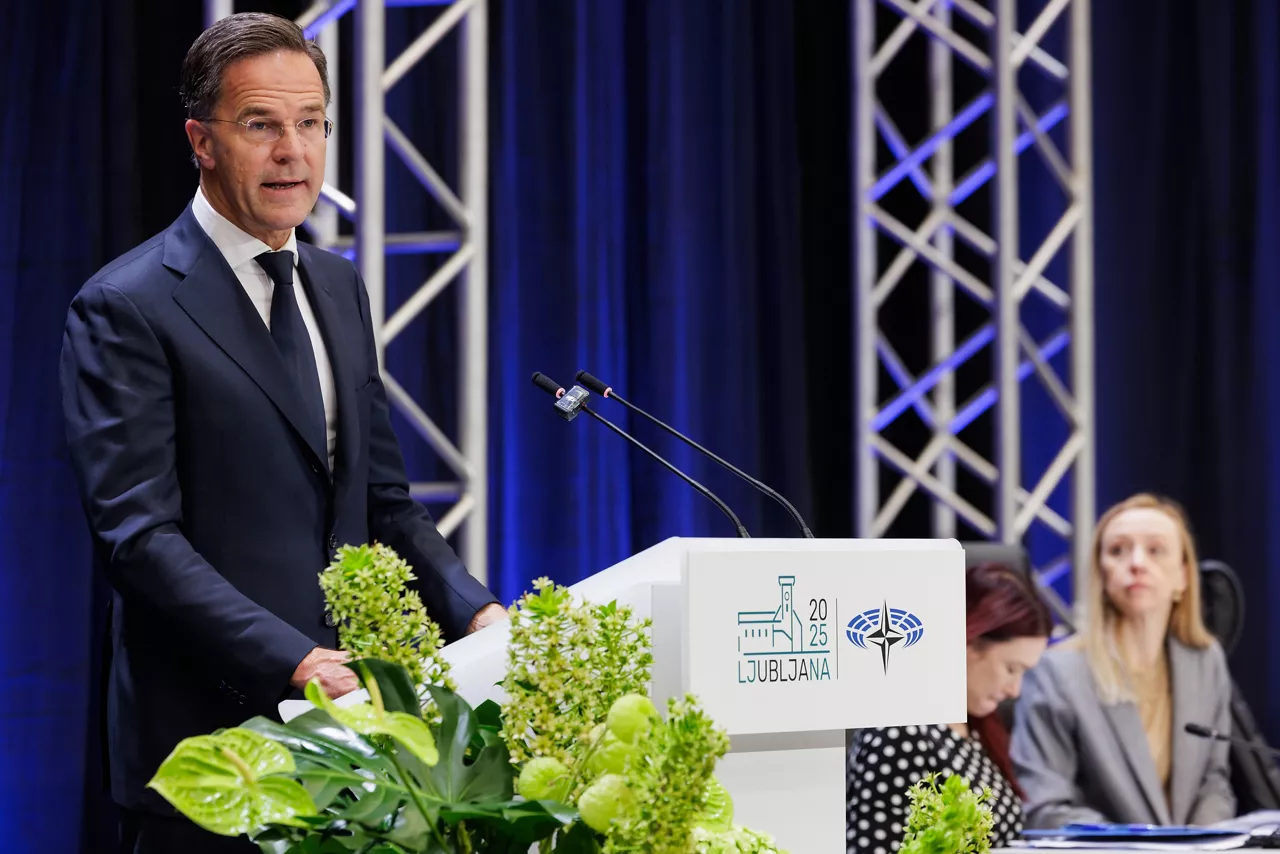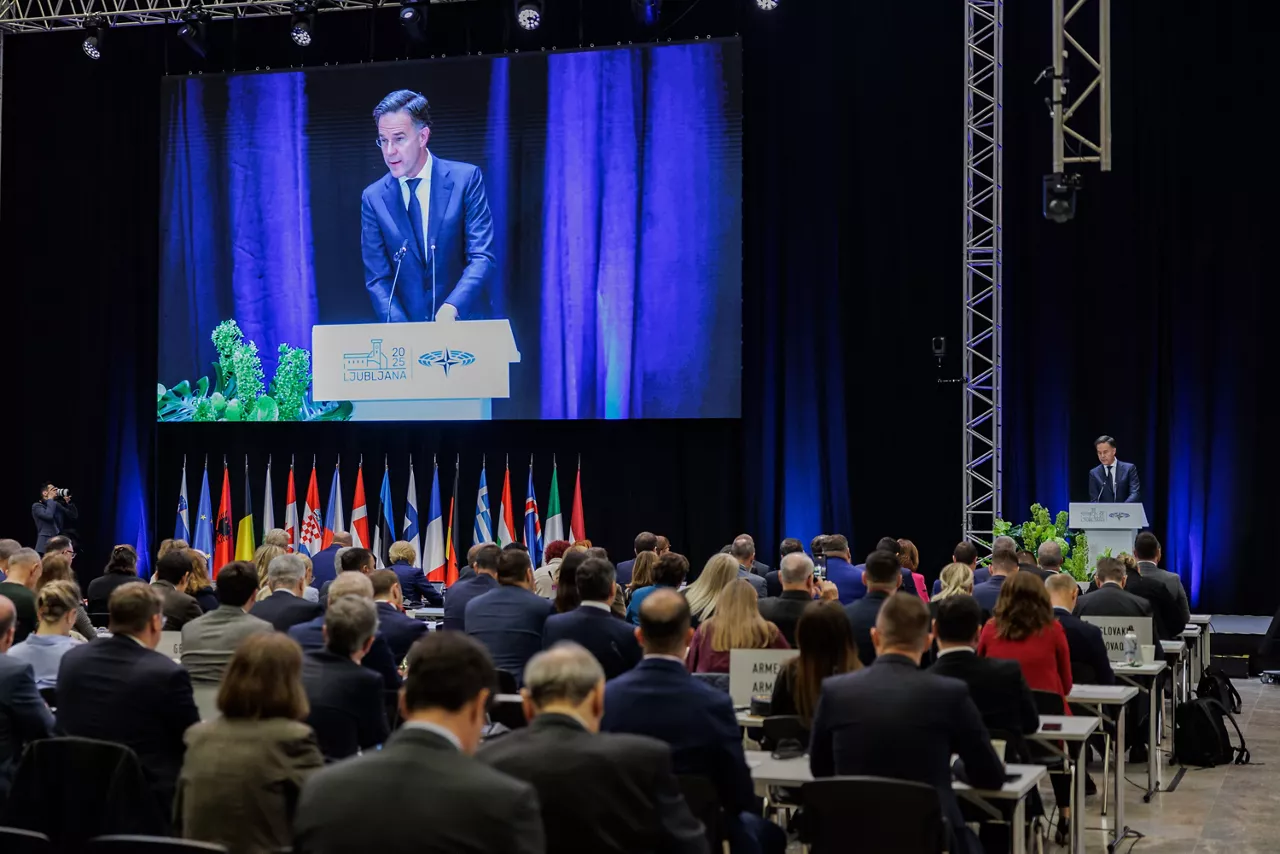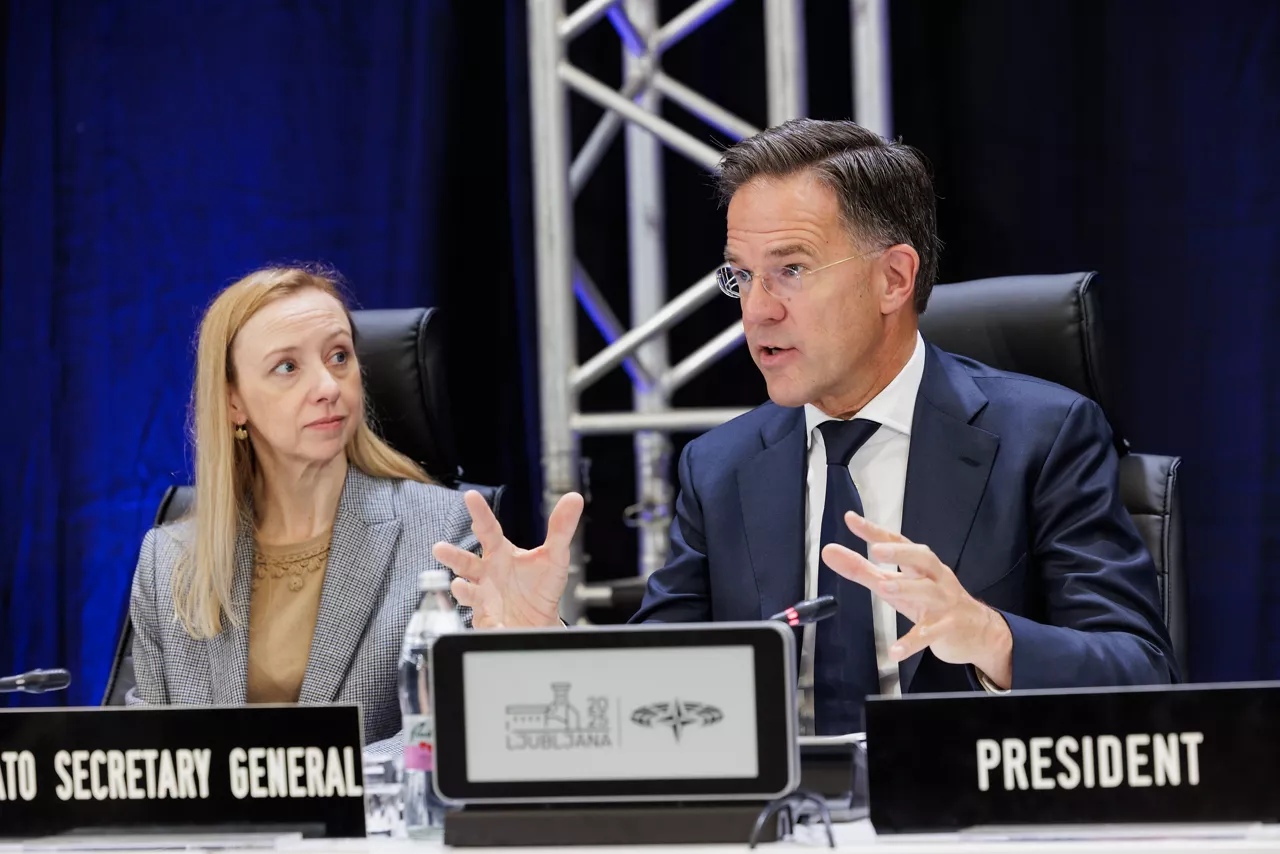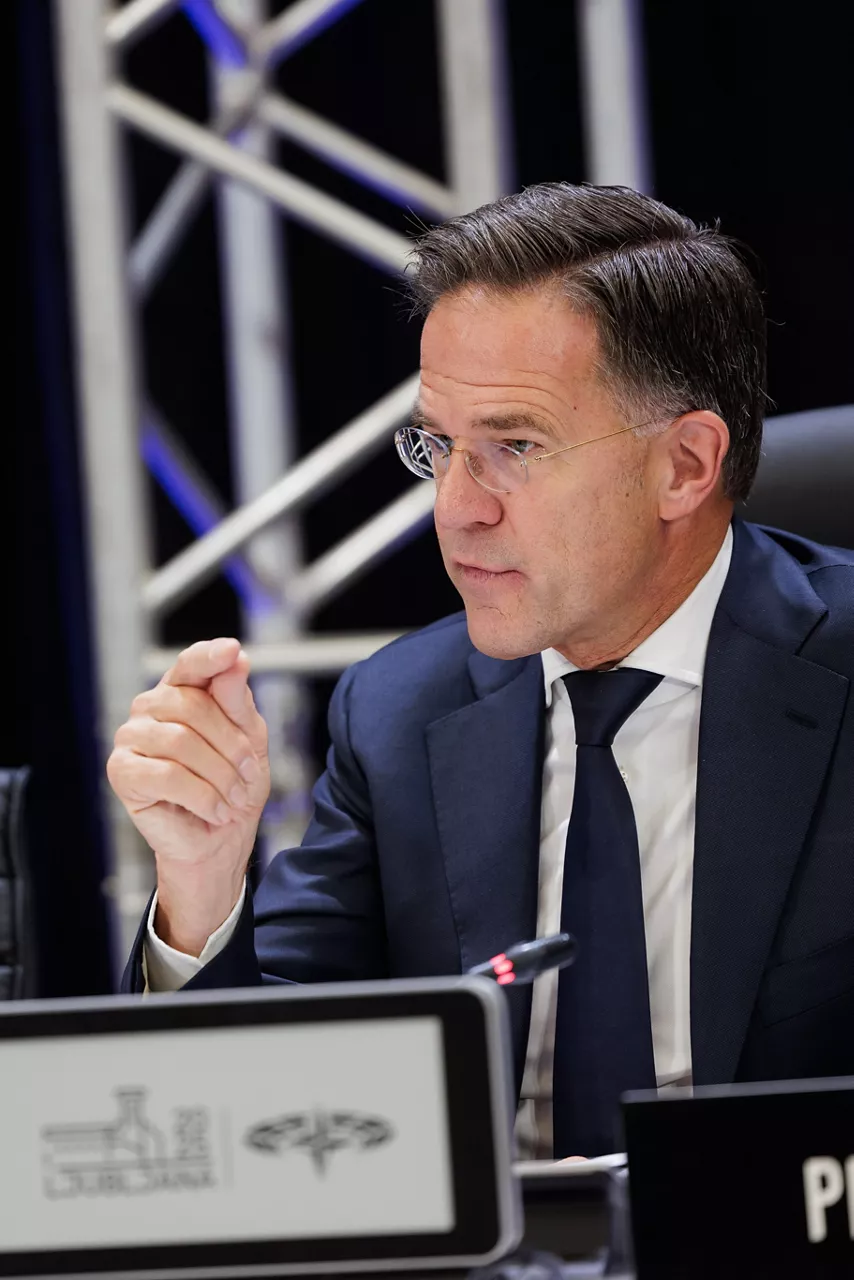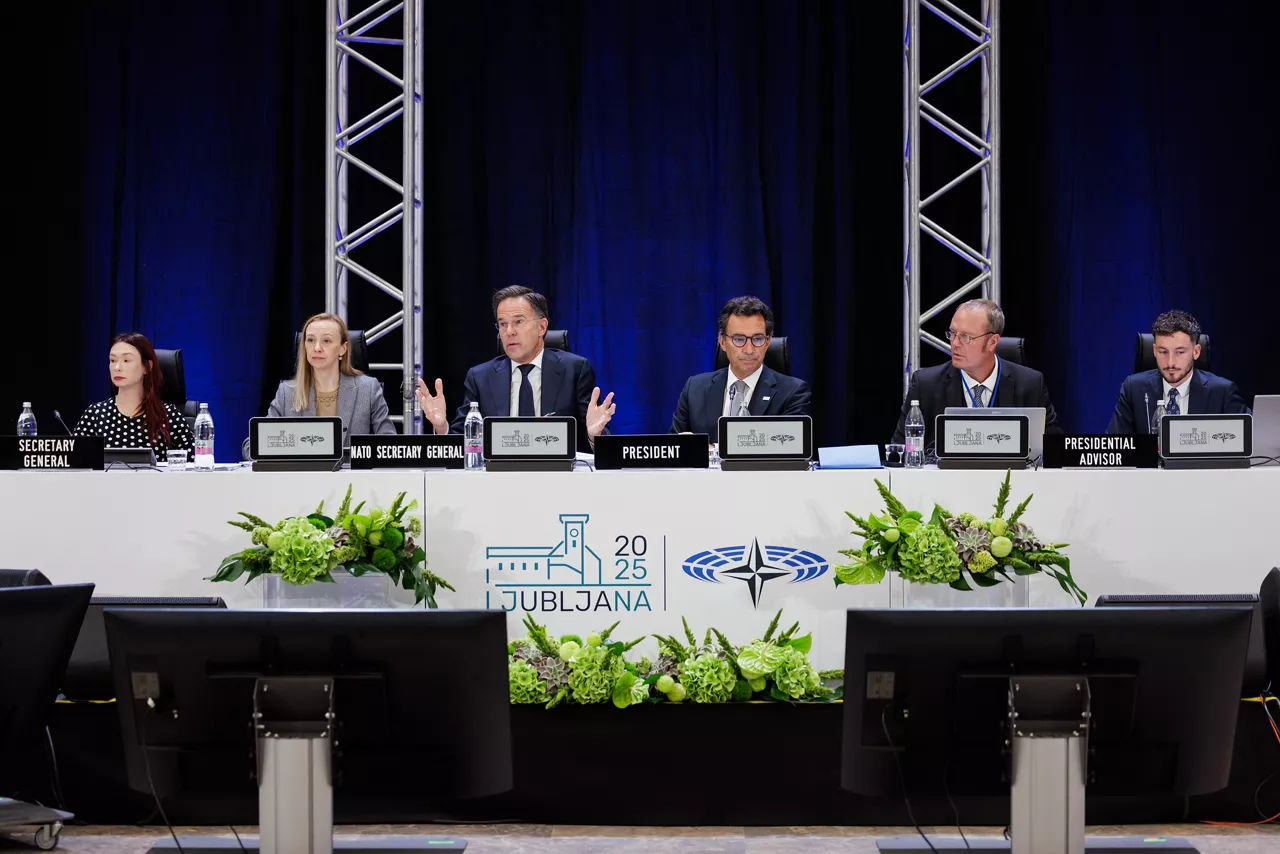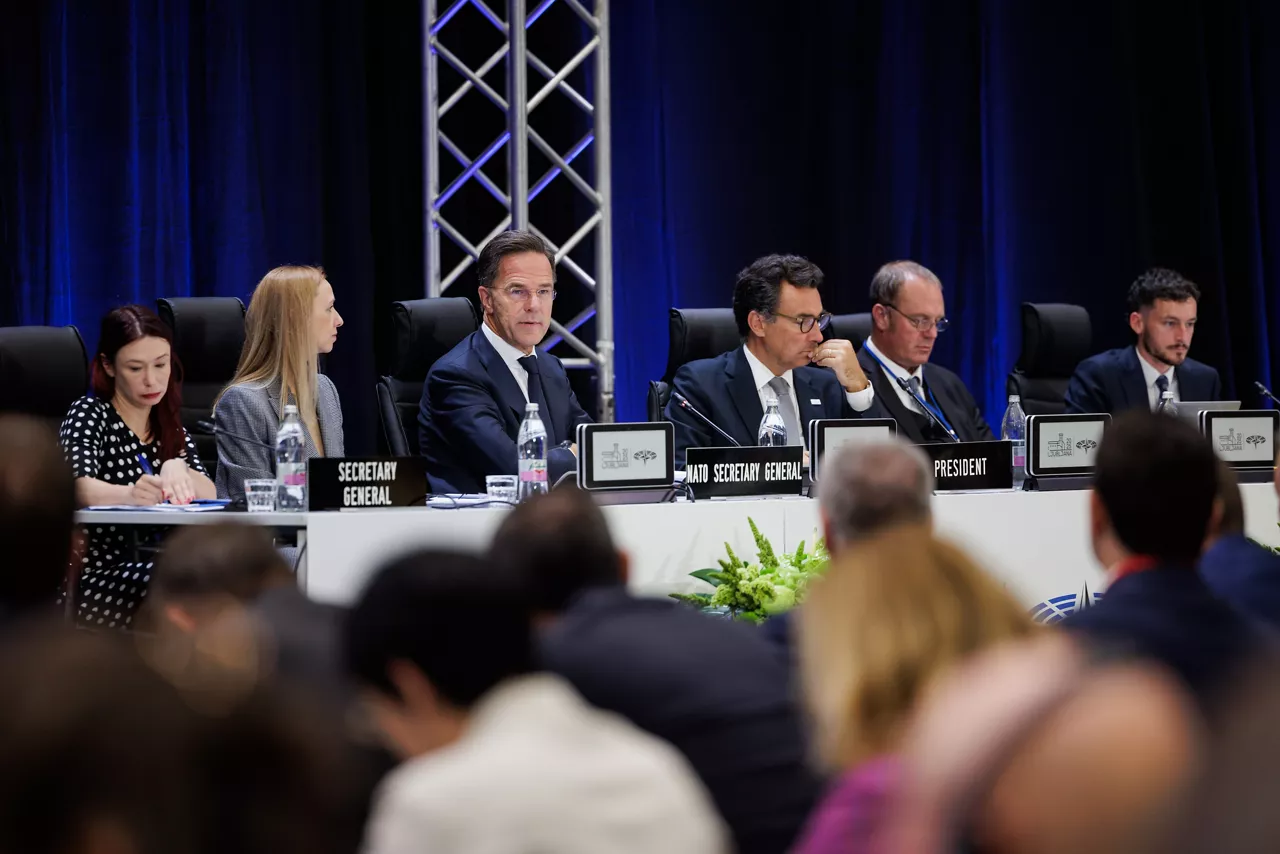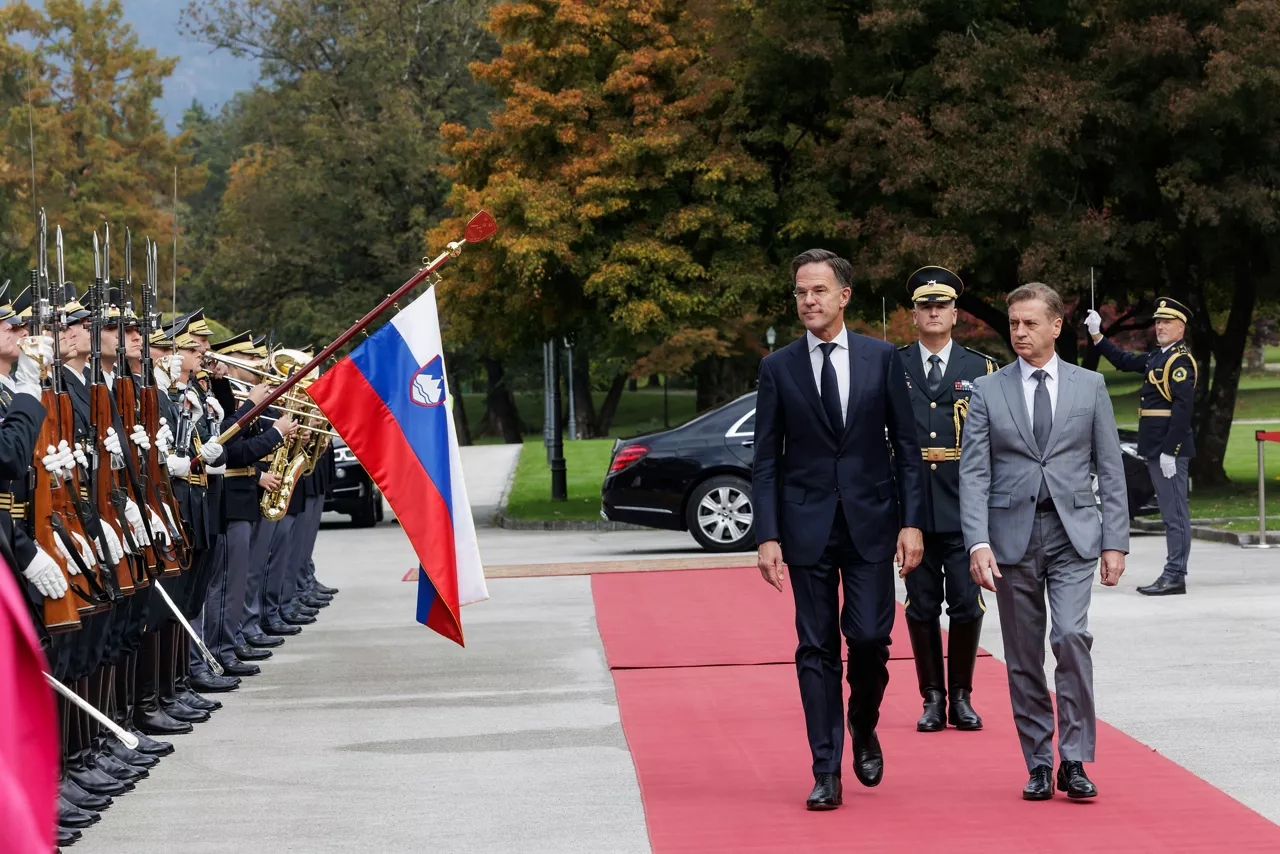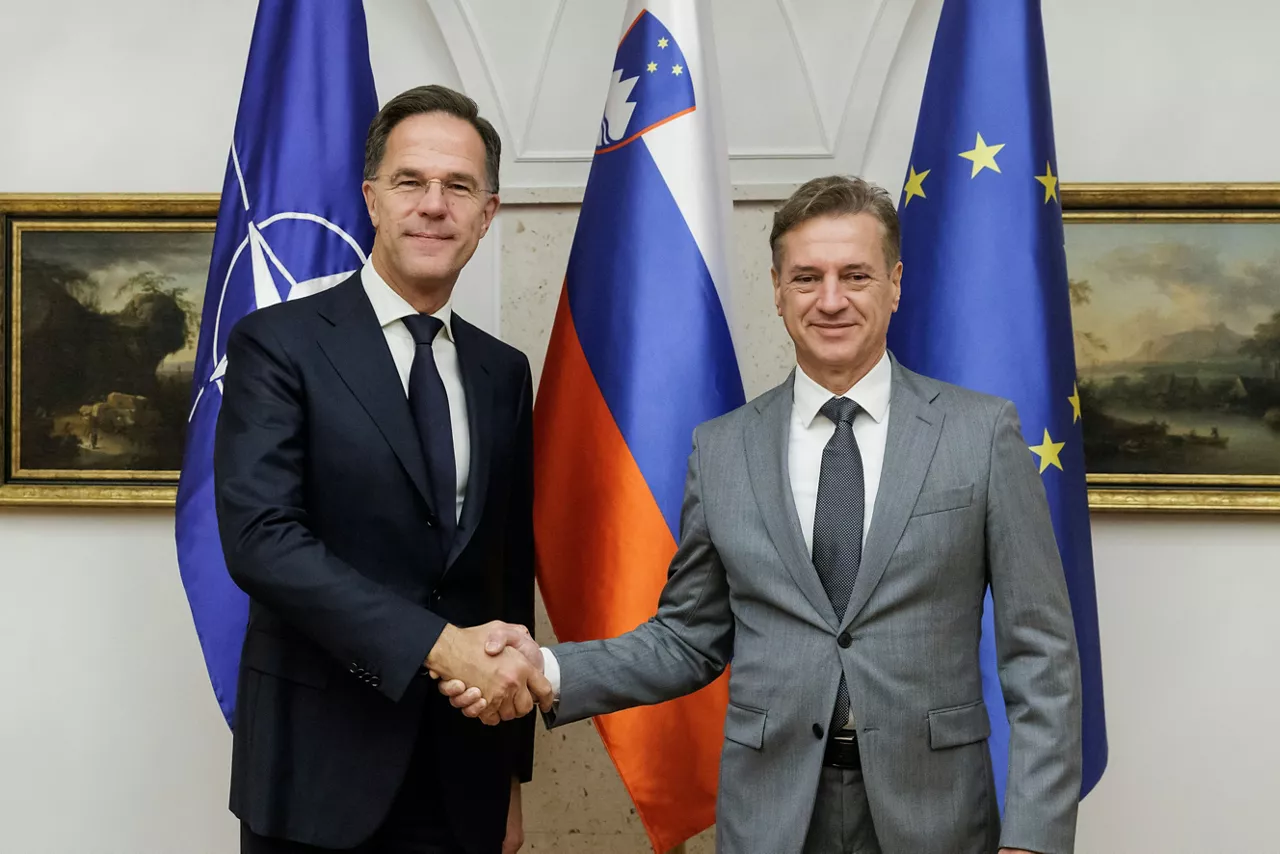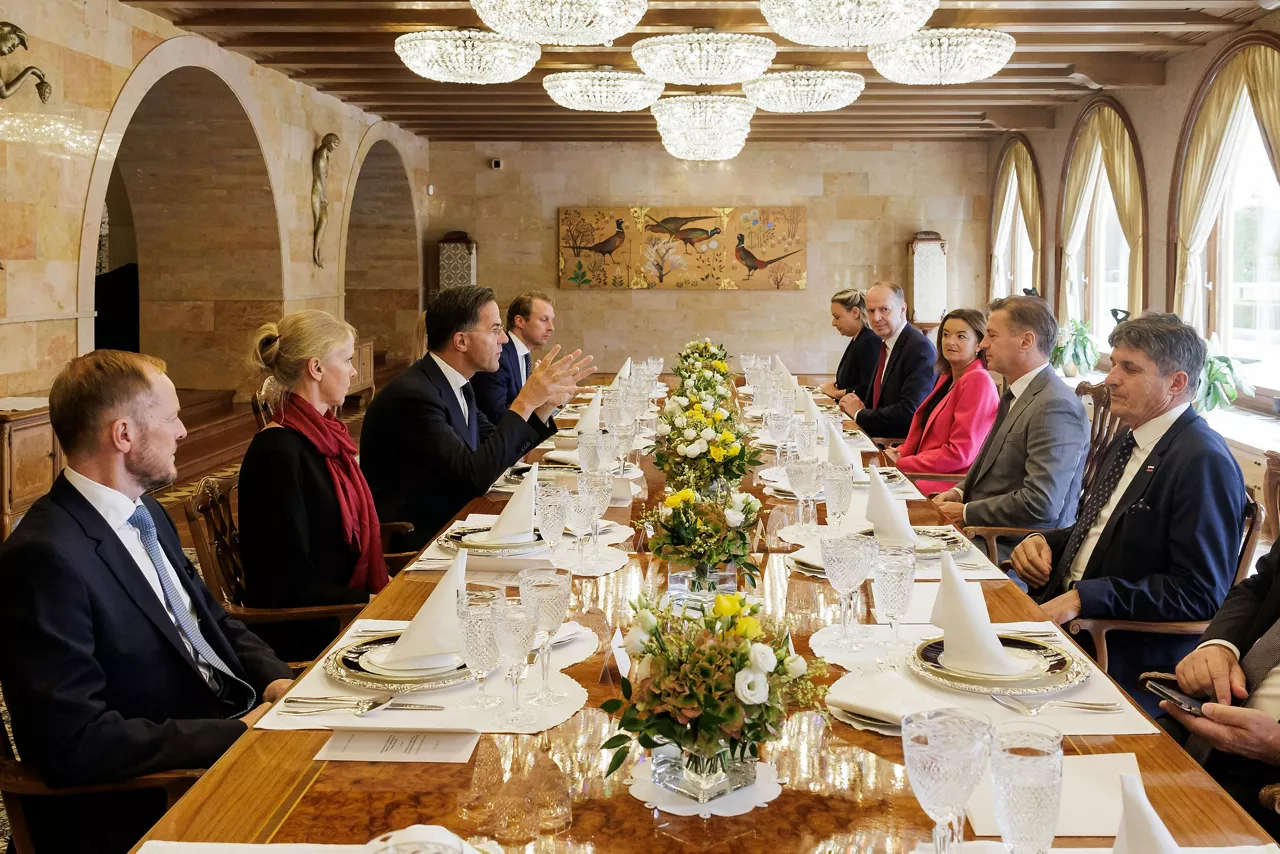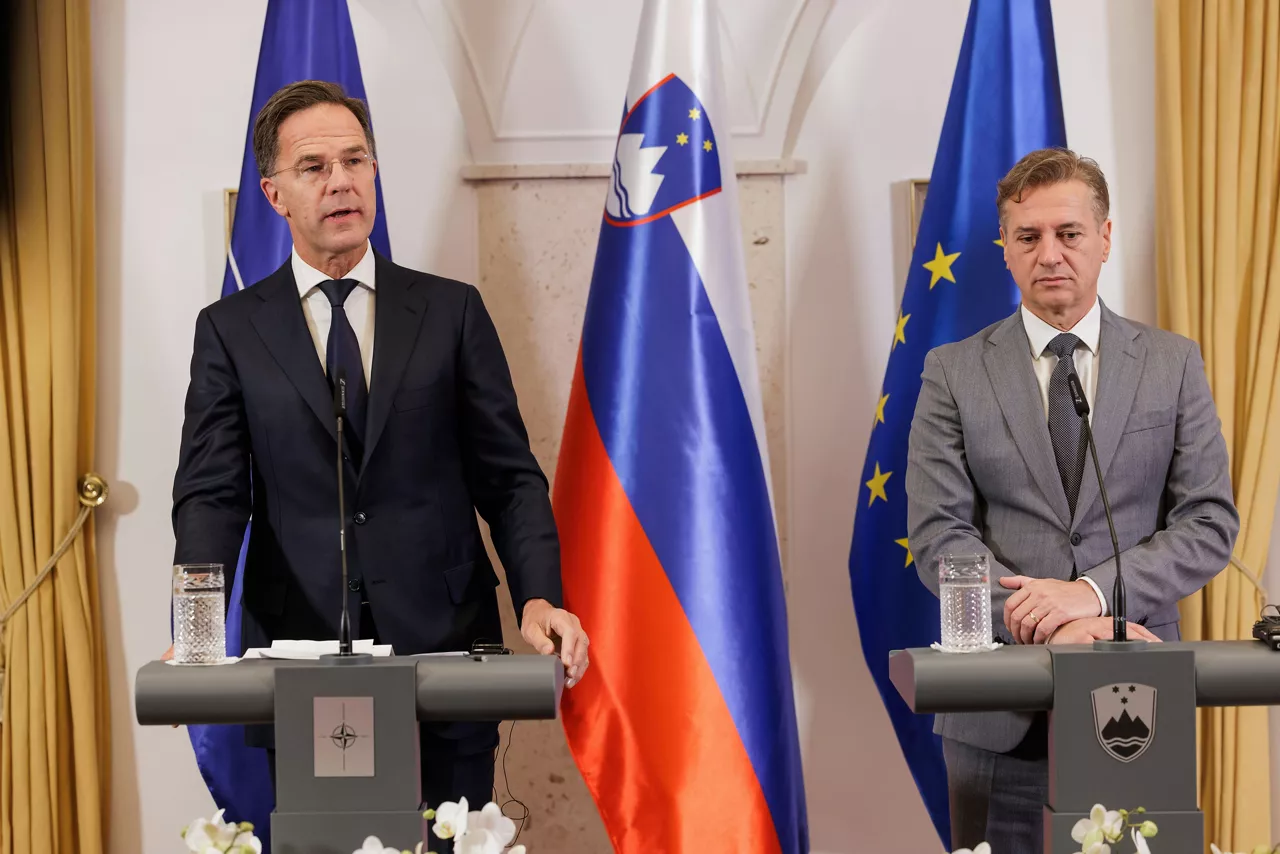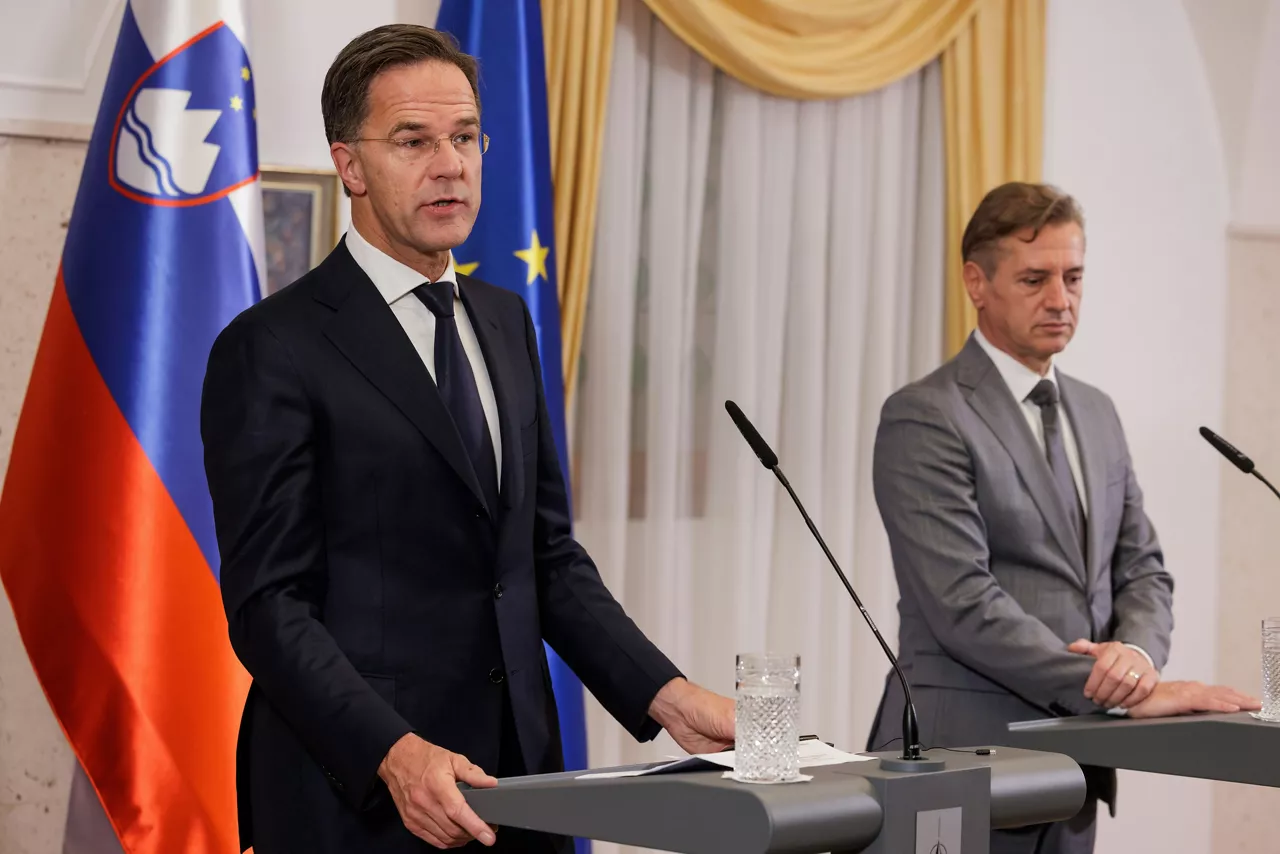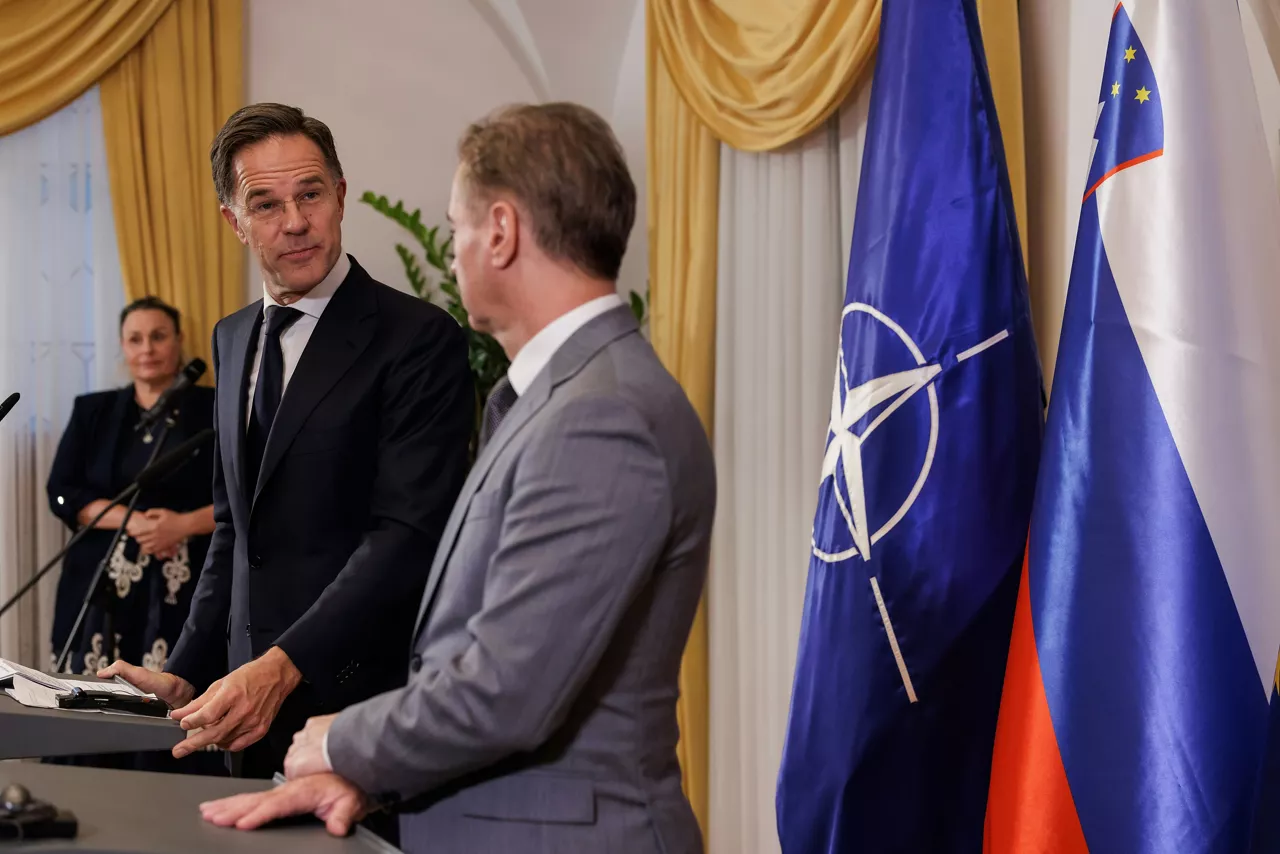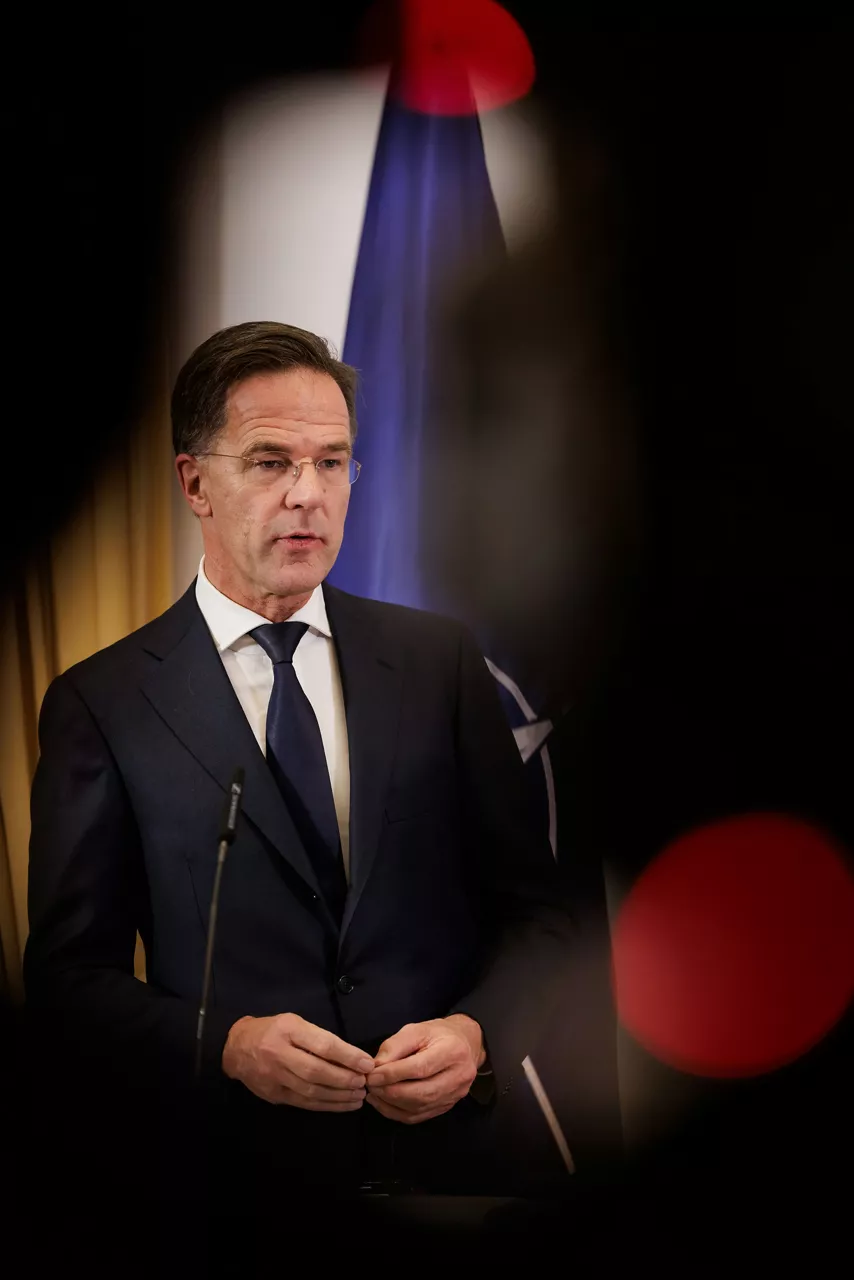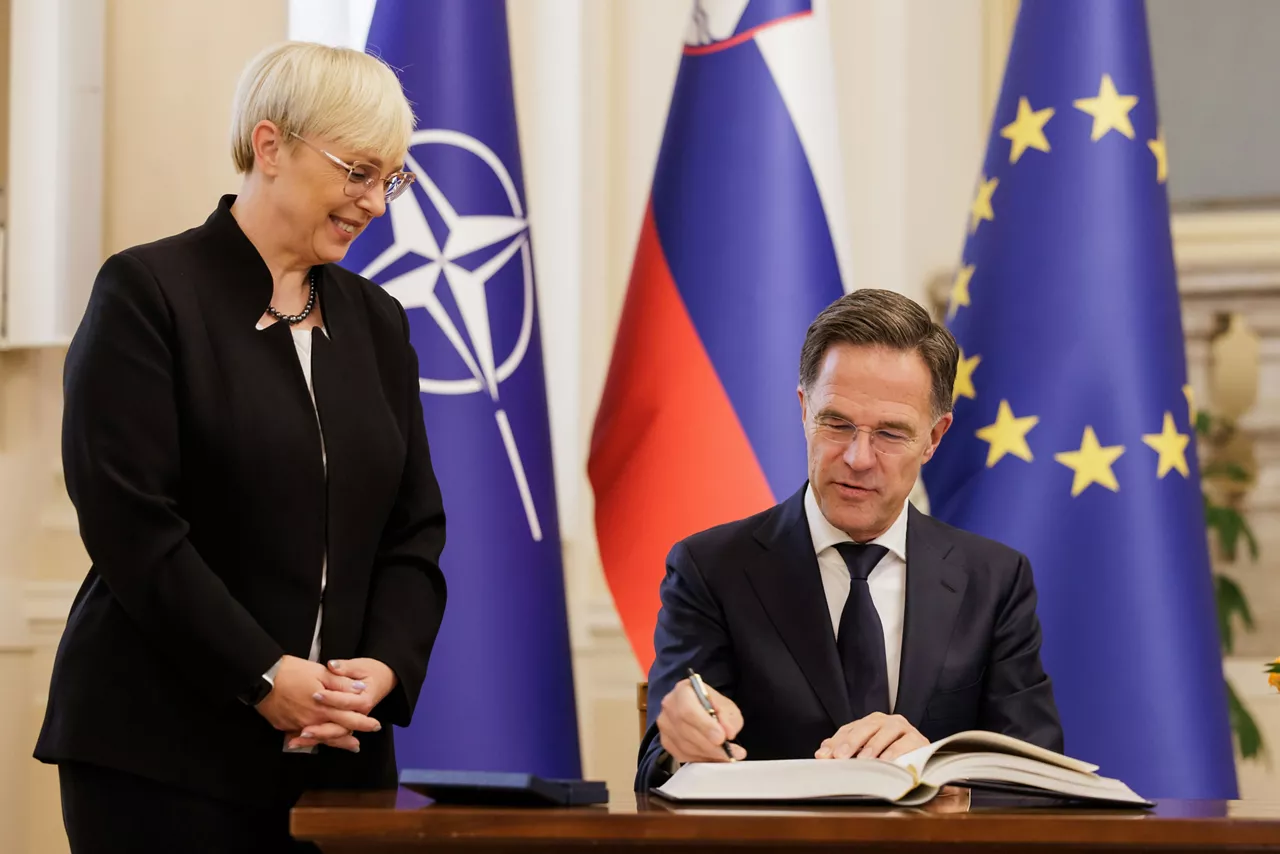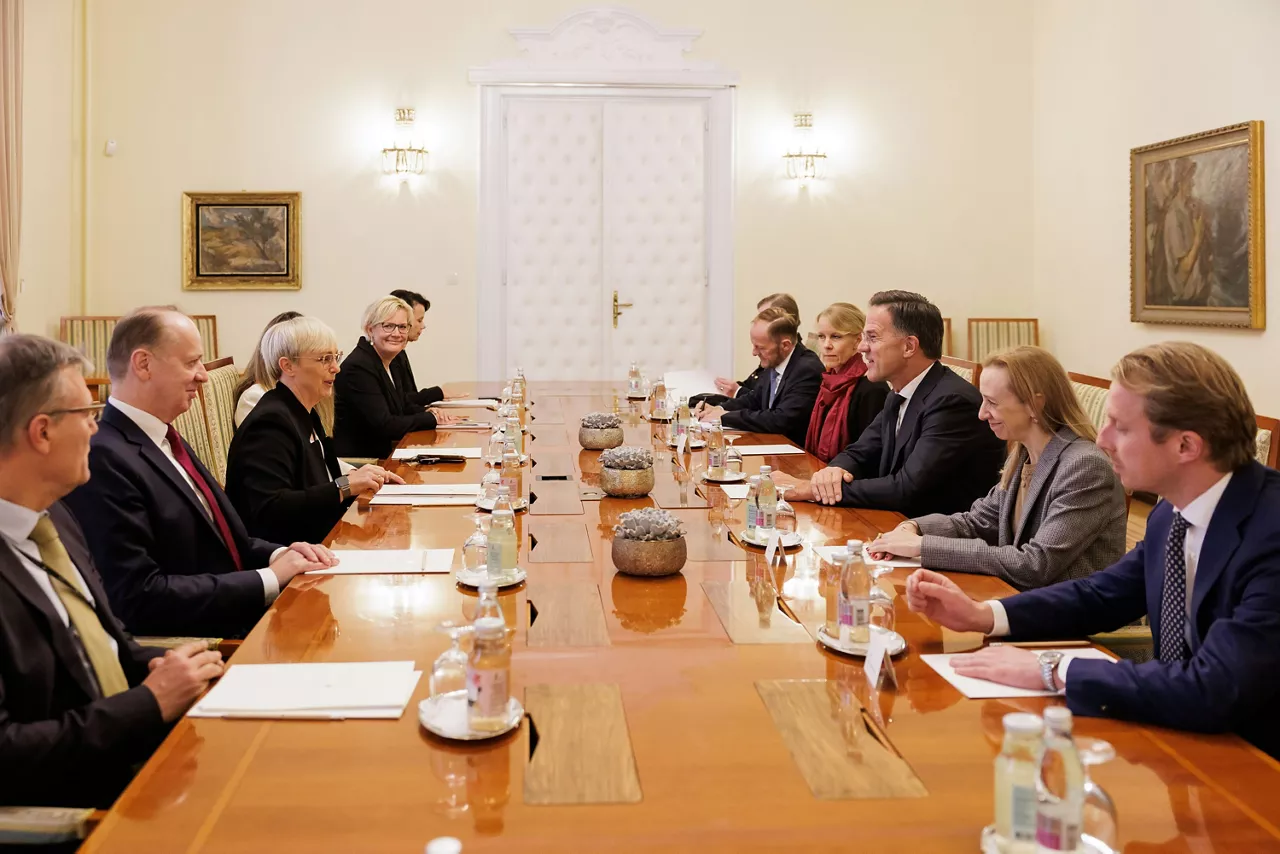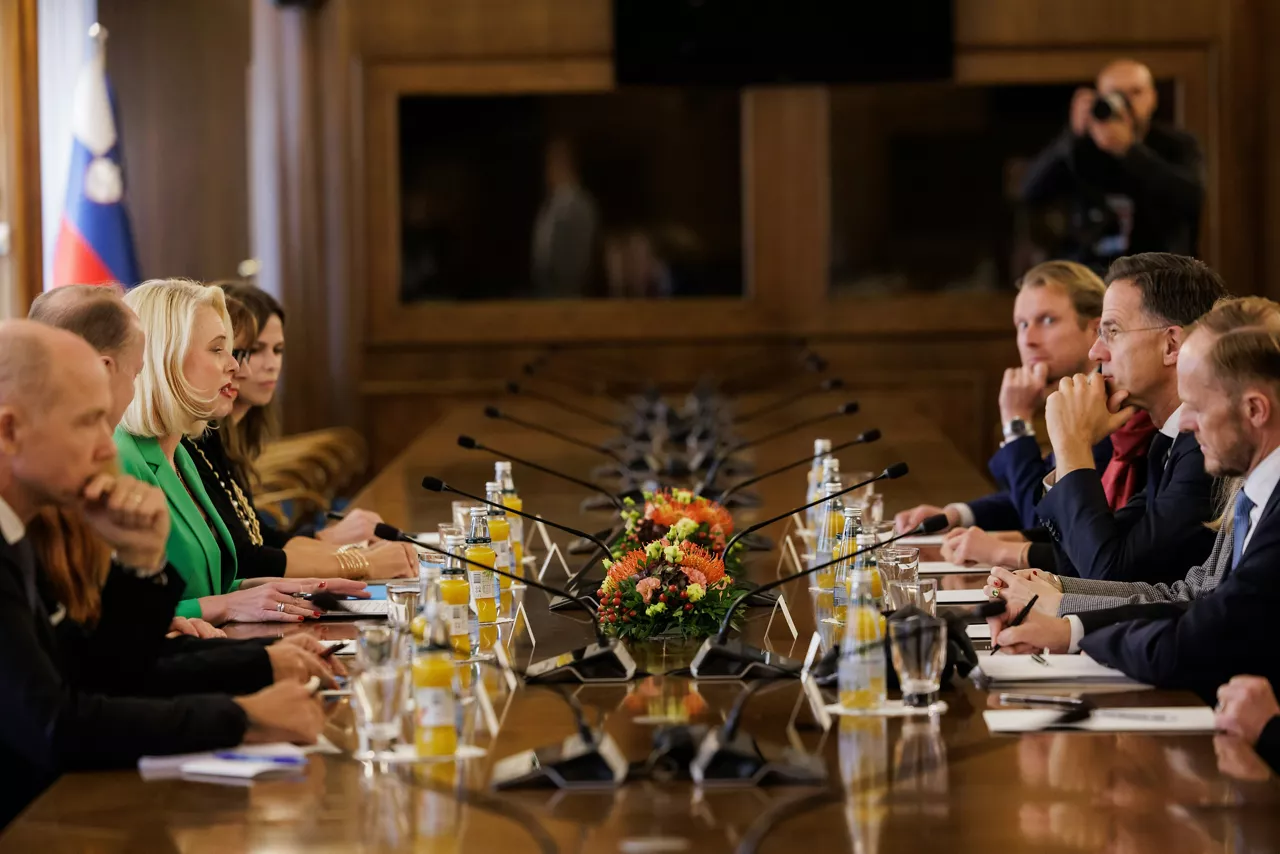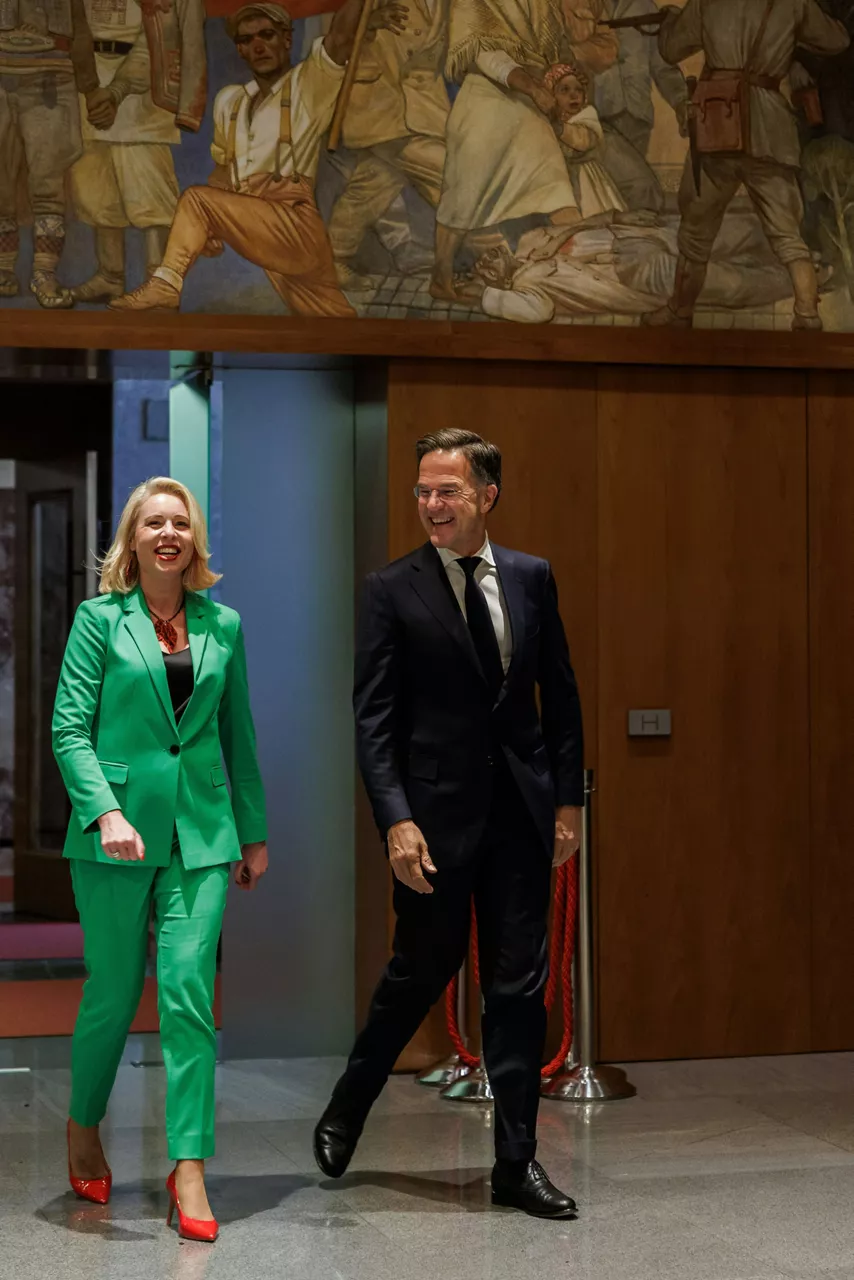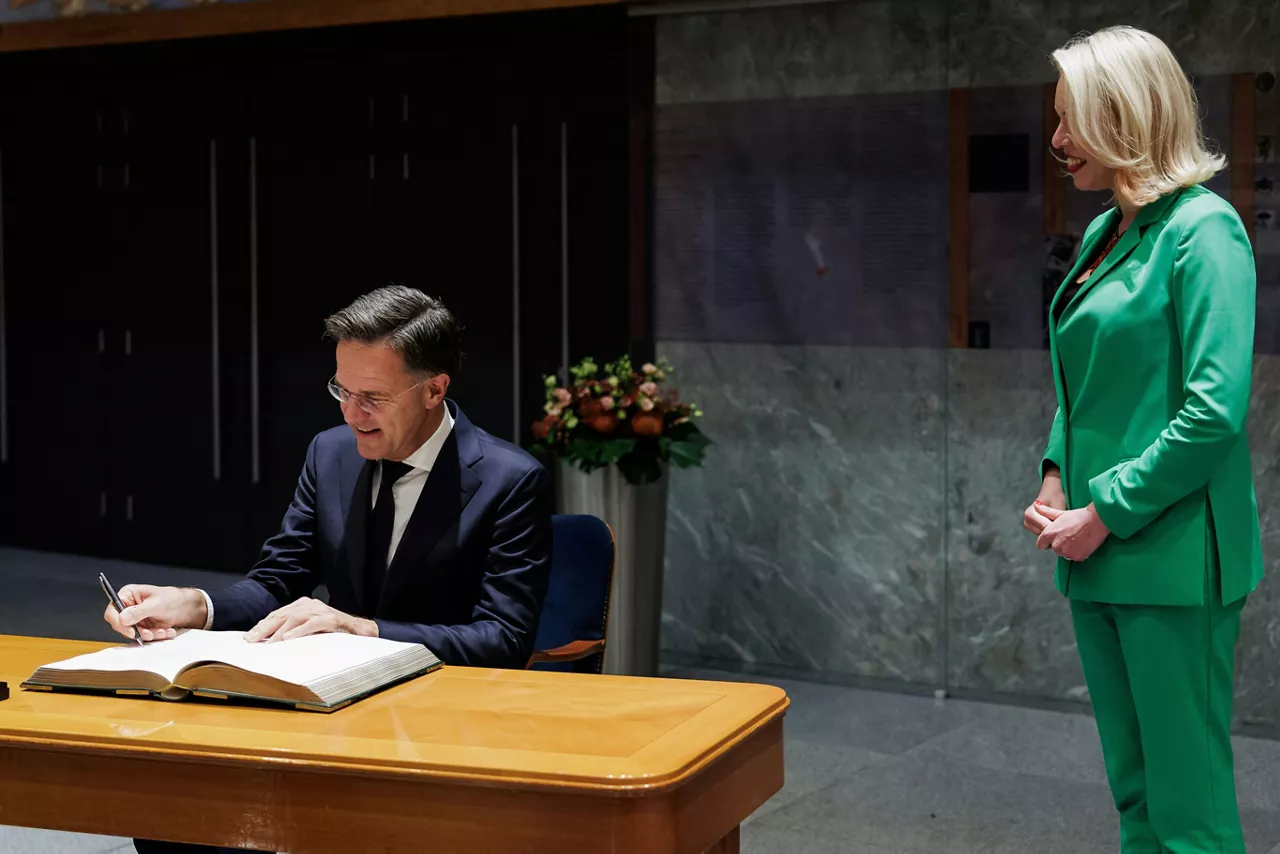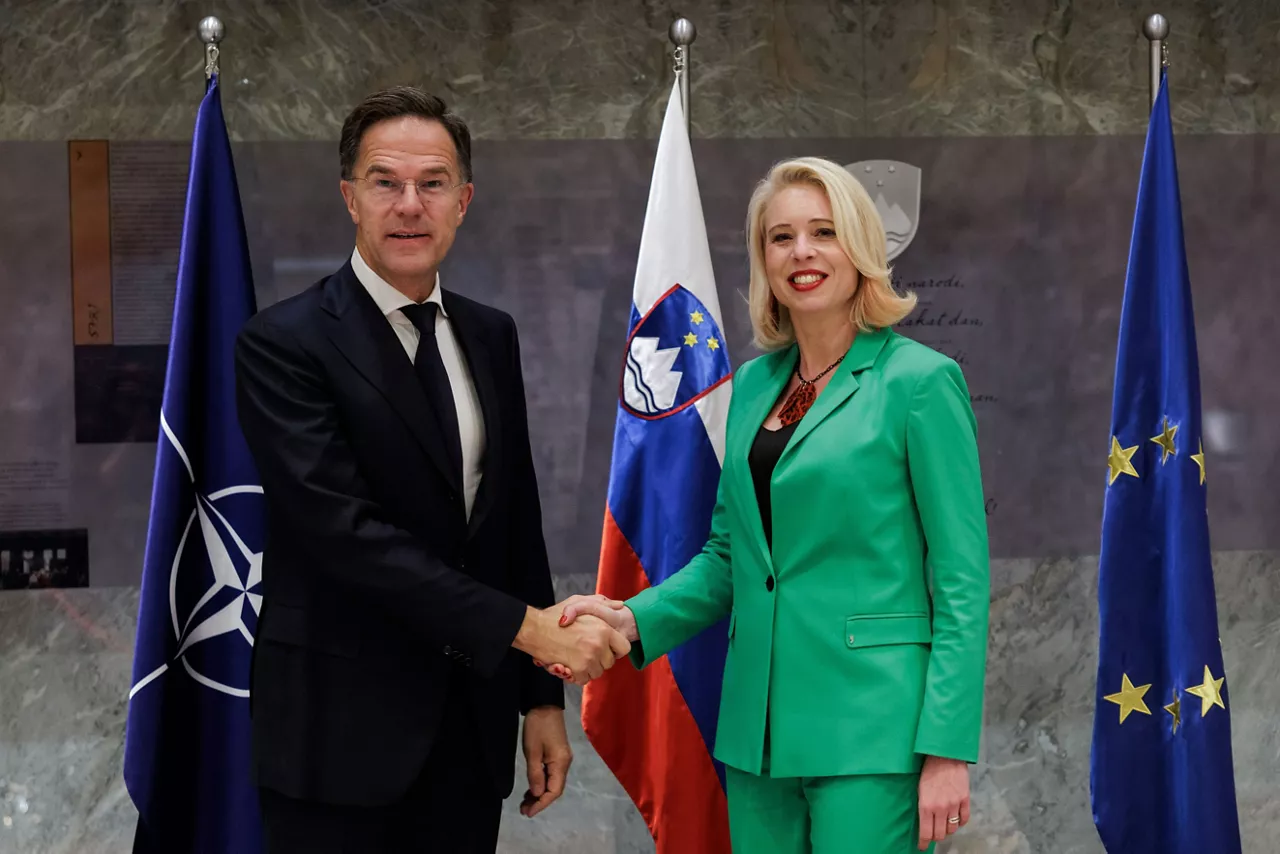Download NATO’s broadcast-quality video content free of charge

NATO MULTIMEDIA ACCOUNT
Access NATO’s broadcast-quality video content free of charge

Check your inbox and enter verification code
You have successfully created your account
From now on you can download videos from our website
Subscribe to our newsletter
If you would also like to subscribe to the newsletter and receive our latest updates, click on the button below.
Enter the email address you registered with and we will send you a code to reset your password.
Didn't receive a code? Send new Code
The password must be at least 12 characters long, no spaces, include upper/lowercase letters, numbers and symbols.
Your password has been updated
Click the button to return to the page you were on and log in with your new password.
On Monday (13 October 2025), NATO Secretary General Mark Rutte visited Ljubljana, Slovenia, where he addressed the 71st Annual Session of the NATO Parliamentary Assembly.
At the NATO Summit in The Hague in June, Allies agreed to spend 5% of their GDP on defence, rapidly expand defence production, and continue to support Ukraine. Mr Rutte underlined that “NATO is stepping up.” European Allies and Canada are significantly increasing their defence investment and ramping up production. NATO’s new initiative, Prioritised Ukraine Requirements List (PURL) has already channelled $2 billion of essential military equipment to Ukraine. In the first two months since its launch, equipment via PURL “is not only keeping Ukraine in the fight” but “it is saving lives,” said the Secretary General.
Underscoring the importance of their role, Mr Rutte urged parliamentarians to raise awareness with their publics and governments of the Alliance’s priorities, and of the security threats societies are facing. Mr Rutte warned that “we live in a dangerous world...the risks to our security have reach.” Challenges to the Alliance’s collective security demonstrate “why it is essential that we work together in NATO,” said the Secretary General. Investing more in defence will help Allies “protect critical infrastructure, defend our networks, strengthen our resilience, and enhance civil preparedness.”
During his visit, the Secretary General met Slovenian Prime Minister Dr Robert Golob, President Dr Nataša Pirc Musar and President of the National Assembly Urška Klakočar Zupančič. He thanked them for Slovenia’s contributions to the Alliance, including to NATO’s missions in Iraq and Kosovo as well as to the Forward Land Forces in Latvia and Slovakia. Mr Rutte highlighted Slovenia’s support for Ukraine, welcoming Slovenia’s announcement of its contribution to the next PURL package of essential equipment for Ukraine. Slovenia has also committed to increasing defence investment; the Secretary General noted that doing so ensures NATO has “the capabilities and forces to keep our people safe.”
Related assets
GALLERIES
NATO Secretary General attends the 71st Annual Session of the NATO Parliamentary Assembly
13 October 2025
NATO Secretary General Mark Rutte arrives in Ljubljana, Slovenia
NATO Secretary General Mark Rutte meets with Marcos Perestrello, President of the NATO Parliamentary Assembly
NATO Secretary General Mark Rutte meets with Marcos Perestrello, President of the NATO Parliamentary Assembly
Address by NATO Secretary General Mark Rutte
Address by NATO Secretary General Mark Rutte
Address by NATO Secretary General Mark Rutte
Address by NATO Secretary General Mark Rutte
Address by NATO Secretary General Mark Rutte followed by Q&A session
Address by NATO Secretary General Mark Rutte followed by Q&A session
Address by NATO Secretary General Mark Rutte followed by Q&A session
Address by NATO Secretary General Mark Rutte followed by Q&A session
NATO Secretary General Mark Rutte meets with Robert Golob, Prime Minister of Slovenia
NATO Secretary General Mark Rutte meets with Robert Golob, Prime Minister of Slovenia
NATO Secretary General Mark Rutte meets with Robert Golob, Prime Minister of Slovenia
NATO Secretary General Mark Rutte meets with Robert Golob, Prime Minister of Slovenia
Joint press conference by NATO Secretary General Mark Rutte and Robert Golob, Prime Minister of Slovenia
Joint press conference by NATO Secretary General Mark Rutte and Robert Golob, Prime Minister of Slovenia
Joint press conference by NATO Secretary General Mark Rutte and Robert Golob, Prime Minister of Slovenia
Joint press conference by NATO Secretary General Mark Rutte and Robert Golob, Prime Minister of Slovenia
NATO Secretary General Mark Rutte meets with Nataša Pirc Musar, President of Slovenia
NATO Secretary General Mark Rutte meets with Nataša Pirc Musar, President of Slovenia
NATO Secretary General Mark Rutte meets with Urška Klakočar Zupančič., Speaker of the National Assembly of Slovenia
NATO Secretary General Mark Rutte meets with Urška Klakočar Zupančič., Speaker of the National Assembly of Slovenia
NATO Secretary General Mark Rutte meets with Urška Klakočar Zupančič., Speaker of the National Assembly of Slovenia
NATO Secretary General Mark Rutte meets with Urška Klakočar Zupančič., Speaker of the National Assembly of Slovenia
GALLERIES
NATO Secretary General attends the 71st Annual Session of the NATO Parliamentary Assembly



NATO Secretary General attends the 71st Annual Session of the NATO Parliamentary Assembly
Address by NATO Secretary General to the NATO Parliamentary Assembly
Usage rights
CLOSE
This media asset is free for editorial broadcast, print, online and radio use. It is restricted for use for other purposes.
NATO Secretary General attends the 71st Annual Session of the NATO Parliamentary Assembly
NATO Secretary General meets with Slovenian Prime Minister
Usage rights
CLOSE
This media asset is free for editorial broadcast, print, online and radio use. It is restricted for use for other purposes.
NATO Secretary General attends the 71st Annual Session of the NATO Parliamentary Assembly
Press conference by the NATO Secretary General and the Slovenian Prime Minister (opening remarks)
Usage rights
CLOSE
This media asset is free for editorial broadcast, print, online and radio use. It is restricted for use for other purposes.
TITLE
DATE
DURATION
Address by NATO Secretary General Mark Rutte at the 71st Annual Session of the NATO Parliamentary Assembly in Ljubljana, followed by Q&A
Joint press conference with NATO Secretary General Mark Rutte and the Prime Minister of Slovenia, Robert Golob
Address by NATO Secretary General Mark Rutte at the 71st Annual Session of the NATO Parliamentary Assembly in Ljubljana


